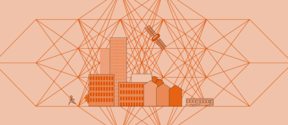Science Fiction has a role to play in the design of the Internet of Things
Aalto University graduate, Tiina Kymäläinen MA, defended her doctoral dissertation on the subject of the user-based development of the Internet of Things (IoT). Kymäläinen specifically examined the ways in which people create so-called DIY ecological techno-systems in their own home and in their spare time.
"The Internet of Things refers to the phenomenon of environmentally-based devices and sensors being connected to the internet. Such devices can be, for example, lamps, white goods, musical instruments, body sensors, timers and thermometers", she explains.
Along with the end users themselves, Kymäläinen produced four prototype systems that utilised IoT technology. These systems were then implemented in a smart residential care home for the elderly, therapy settings for people with learning difficulties, music therapy and sensory stimulation environments for elderly people, and as an interior design tool for hobbyists.
Everyday significance
In her dissertation, Kymäläinen describes the observations made while using the prototypes in the form of Science Fiction stories. This method has been christened Science Fiction Prototyping (SFP).
"Sci-Fi stories set in the user environments of the future help describe what the IoT will look and feel like. These stories also help deepen our understanding of the ecological significance that the technologies being researched have in people's everyday experiences", Tiina continues.
Her doctorate represents the field of research into IoT users' experiences and ecological design.
"The kinds of prototype that are built as part of large research projects are often technology-driven. It's for this reason that they can be less ecologically responsible or user-friendly. Science Fiction Prototyping will help facilitate well-grounded, research-based technological design in the future", she remarks before going on to explain more of the advantages of her approach.
"The particular benefit of Science Fiction is that allows us to intelligibly describe the kinds of phenomena that are still in their infancy in terms of actual development."
The doctoral dissertation "Science Fiction Prototypes as a Design Outcome of Research” was publicly defended at Aalto University's School of Arts, Design and Architecture on Wednesday 4 February 2015, at 12 pm, in the Sampo Hall at Mediakeskus Lume, Hämeentie 135 C, Helsinki. Professor Emeritus Victor Callaghan from the University of Essex, UK, served as the opponent for the defence.
Orders for the doctoral dissertation can be made through the Aalto University online store at shop.aalto.fi, enquiries to [email protected], tel. +358 (0)50 313 7086.
Further information:
Tiina Kymäläinen
tel. 0400 399 511
[email protected]
Read more news

Get to know us: Associate Professor Maria Sammalkorpi
Sammalkorpi received her doctorate from Helsinki University of Technology 2004. After her defence, she has worked as a researcher at the Universities of Princeton, Yale and Aalto.
Aalto computer scientists in ICML 2024
Computer scientists in ICML 2024
Getting bacteria into line
Physicists use magnetic fields to manipulate bacterial behaviour